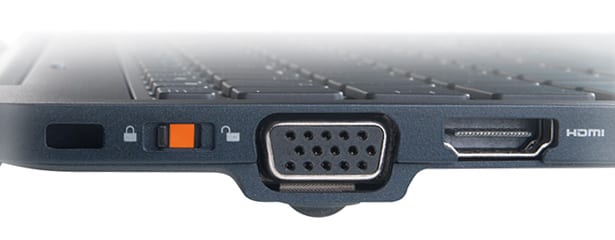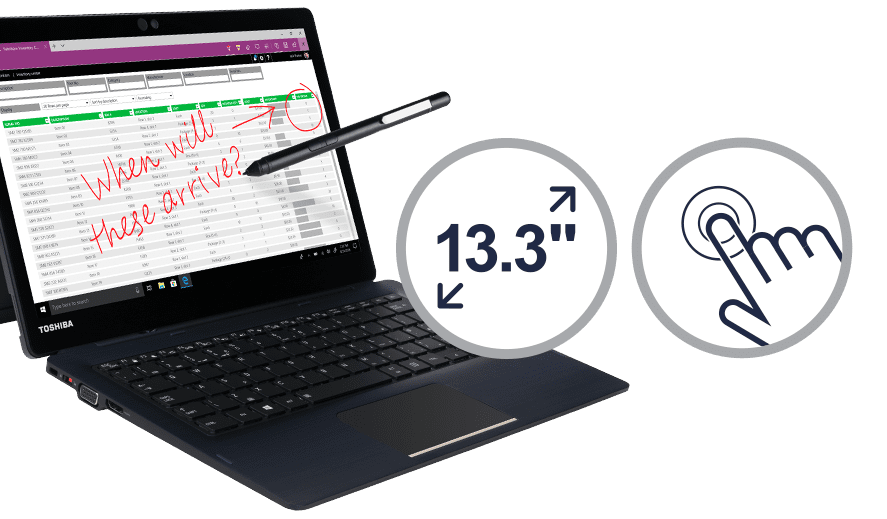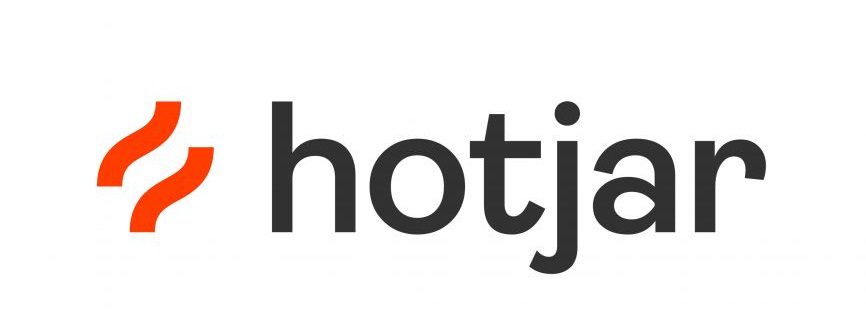Brexit Committee Update March 2019
Brexit Committee News Update – March Update

As UK Parliament move towards a crucial series of votes, HMRC are still advising businesses to prepare for ‘No Deal’. Below sets out some key actions XMA are taking before 29th March to prepare for such an eventuality.
It is worth pointing out that should a deal be passed by parliament in the coming days, the resulting transitional period lasting to at least Dec 2020 would mean that business would continue to operate as they do today with free movement of goods between the EU and the UK and would give XMA and its partners further time to prepare for any changes we would face as part of the final withdrawal agreement. We may face exactly the same issues we currently face or even a different set of issues for which we may have little time to prepare for. However, it will allow the Government to prepare more robust customs procedures and processes as well as negotiate favourable trade deals with both the EU and other countries.
Inventory
As mentioned in previous updates, XMA have negotiated increased one-off stock holding deals with its main hardware and supplies partners. This will result in a significantly increased stock holding. Whilst naturally not a long-term solution, it should mitigate any immediate shortfalls as delays at ports build up. In addition, we are advising customers to ensure they order channel stock as opposed to product built to order in EU factories to ensure the best service to customers. XMA have stepped up its services capability to configure locally to ensure end-users are serviced well during this period of uncertainty.
Customs & Border Control
Customs declarations will be mandatory for imports and exports for trade between the EU and the UK. Through our parent company (Westcoast) we are well versed in managing such declarations and have been busy collecting standard (UK will continue to be consistent post-Brexit) commodity codes (HS codes) for all live SKUs in our portfolio to understand whether tariffs will be applied. This work is on-going and to date we have confirmed codes on over 73% of active products in Westcoast’s catalogue. Any tariffs levied by the UK on imports or the EU on exports will be passed on to customers in the cost of goods along with admin fees levied by our customs clearance partners. At this point, we have identified very few risk areas, yet we encourage you also to take proactive steps to identify whether SKUs you wish to purchase from us could attract additional tariffs. Westcoast will inform customers when tariffs – currently at WTO non-preferential rates – are levied.
Safety and security declarations will be mandatory for imports and exports and Westcoast have a strong partner that will handle any such declarations.
It is mandatory for delivery documentation for goods being exported to show cost prices in order to clear customs effectively. Customers should note that whilst you may feel this is not ideal for direct deliveries to your end users, XMA must comply with all necessary customs clearance requirements.
We are only expecting physical customs checks on a small fraction of consignments particularly as not all ports have Border Inspection Posts (including Calais, Ostend and Normandy). All have plans to build new facilities, but it is not known whether these will be ready and sufficiently staffed in time for 29th March. Whilst we are not anticipating delays to XMA shipments, it will be checks on other products that bear significant tariffs that will create delays as well as the five-fold increase in HMRC custom declaration workload.
Ireland
There are likely to be delays in delivering goods to Ireland from the UK. Through our parent company (Westcoast) Ireland’s warehouse in Tallaght, Dublin, XMA will be have the ability to manage roll-out projects and cross-stock only. Customers are advised to discuss their project deals with their account managers to ensure appropriate space can be allocated. Single pick items will still be delivered from the UK using Westcoast’s logistics partner although some delays may occur at ferry ports.
FAQ’s
EORI – Westcoast do have a UK EORI number which will be sufficient for all declarations.
AEO – Westcoast have not applied for this status as management consider this will not be effective in speeding up customs procedures.
TSP – Westcoast have applied for this accreditation and the application has been acknowledged as received by HMRC.
Warranty – no vendor has yet amended their warranty terms so we can anticipate that warranty procedures will be the same as currently available post-Brexit.
VAT – exports on goods shipped from the UK will not bear VAT from the UK as currently.
Tariffs – where they are imposed, they will be applied on the full price of the goods (i.e. before discounts).
For any questions or queries contact our XMA Brexit committee at approvals@xma.co.uk
Read previous Committee Update for January 2019
Brexit Committee Update January 2019
Brexit News – January Update
With much heightened activity around Brexit, this XMA update is written following the sizeable defeat of the Withdrawal Agreement Bill in the House of Commons and the recent instruction that the Bill might pass if the EU agreed to significant changes in the backstop arrangements.
XMA’s Brexit committee can take no comfort in the UK Parliament’s stated desire to avoid a ‘No-Deal’ scenario on 29 March and continues to follow government advice to make best preparations for such an eventuality.
Key elements
Logistics
Much of the sector are highlighting the extreme difficulties that would arise in a ‘no-deal’ scenario including XMA’s parent company and main distributor (Westcoast) whose lead courier into Europe – Europa, state, that if either the UK or EU customs were not ready, this could lead to significant delays at channel ports. The majority of Westcoast’s and XMA’s import and exports come/go through Dover-Calais. At present, the likelihood of such customs readiness is extremely low and hence customers will experience both shortages and delays in receiving goods. Perishable goods are likely to get priority leading to greater delays for IT and consumables.
Many PCs and Servers are built to order in Eastern Europe and XMA are working with manufactures and customers to ensure forecasted products can be held locally in the UK. Our parent company Westcoast have purchased increased warehousing space to accommodate such requests and XMA are advising all customers to forecast demand beyond March 29 and engage with your XMA account manager to ensure XMA can place appropriate forward orders on your behalf. Post 29 March, XMA recommend that customers should attempt to order stock available in the channel and reduce their reliance on specific build to order devices.
Through our parent company (Westcoast), XMA are also stocking increased quantities of a wide range of products from major vendors that are realising their supply chain is likely to be disrupted. Whilst all vendors have been engaged, all have an array of plans to minimise disruption. However, many will involve XMA taking increased inventory which XMA are ready for.
As the OEM of Viglen Desktop PCs, Ultrabooks and Chromebooks which are assembled in the UK, XMA have established all known customer forecasts for 2019 and have pre-ordered components to meet projected demand plus anticipated additional demand in the event that supply constraints are experienced across Europe.
Ireland
Through Westcoast Ireland, XMA are able to deliver next day to the majority of the Irish Republic and Northern Ireland from the stock based in the UK. Whilst XMA are working with Westcoast to anticipate increased stockholding in its Irish facility in Tallaght, Dublin – this will be limited and hence Westcoast have a strong engagement with their delivery partner Primeline to ensure goods are delivered either through Dublin or Belfast, whichever is speedier. Delays are inevitable in their opinion though.
Much the above delays will lead to increased cost of delivery which Westcoast will incorporate into the cost of the product and pass onto customers.
Exchange Rates
This is the Brexit Committee’s biggest concern given the general indication is that the British ports and customs processes are not yet adequately prepared for a no deal Brexit. A small delay will potentially cause huge delays to goods deliveries in both directions and non-perishable goods will not be prioritised. As a result, we are looking to take the following steps:
Tariffs
XMA’s parent company Westcoast’s Data Governance Office are working hard with vendors to ensure commodity codes are accurate and stored so that all paperwork contain appropriate identification for customs to clear/obtain excise duty. Whilst there are very few products and regions that are anticipated to bear tariffs and Westcoast have not identified any on WTO terms at present – this may not always be the case. Accurate identification of goods will be critical and forms the basis of much of XMA’s / Westcoast’s work at present.
Paperwork
XMA and Westcoast will use outsourced freight forwarders to process paperwork/customs waybills. Most of XMA’s / Westcoast’s key suppliers are readying themselves for the increased workloads.
Incoterms
XMA receive most goods Delivery Duty Paid. If XMA become responsible for any duty or carriage – these will be included in the cost of the product and passed on to customers. Customers should be aware of any changes of terms from their suppliers and XMA will keep customers informed of any agreed changes and their effect.
Contracts
All key contracts cover the UK and no vendor with an existing all of EU and EEA contract with XMA has yet proposed a constriction to the UK only. All have expressed their intention to include the UK as a region on the existing contract
Whilst there is still much uncertainty, the significant short/medium term issue affecting XMA customers is delay at the ports. This will be mitigated with a signing of the Withdrawal Agreement and will allow the UK to build more robust custom procedures where required in collaboration with the EU. XMA will continue to lobby parliament through our parent company Westcoast.
For any questions or queries contact our XMA Brexit committee at approvals@xma.co.uk
Read XMA's next Brexit Committee Update
Toshiba’s 2-in-1 for your organisation

In recent years we have been seeing a rise in the use of 2-in-1 laptops or convertible notebooks, often referred to as detachable devices. There are many reasons for this growth, with the ‘detachable tablets’ being seen a fresh approach to the market and a more flexible and versatile device for working environments, as well as the added increase in the need for businesses and students to go portable.
Many buyers will be considering which device is best suited and why. Here we look at the newly launched Toshiba Portégé X30T which offers strong competition to this market.

The Portégé X30T uses a full-size port layout in a tablet-style freedom. Featuring Intel 8th Generation processors and ultra-fast SSD storage delivers the unthrottled performance you’d expect, making light work of heavy tasks. With proven physical security and durability meets military standards MIL STD 810G and has been tested to pass TUV HALT standards which simulate three years’ usage.
Other features include:
- Up to 15.5hr battery life
- Optional LTE to keep you online
- Full size port layout
- Bio-metric multi-factor authentication for added security
- Military Grade robustness

High performance creative tablet
Also able to be used as a high performance tablet with a 13.3″ touchscreen and kickstand, you can boost your creativity with best in class hand writing or drawing via the optional Toshiba Universal Stylus Pen with Wacom AES Pen Technology optimised for Windows Ink.
The Standard of Toshiba Portégé X30T
What is very interesting about the Toshiba Portégé X30T is that you do not need to purchase a keyboard dock, as it comes bundled as standard, still with a battery life of an astonishing 15.5 hours.
There are optional accessories, to enhance your mobile performance:
- Sleeve protector
- Travel keyboard
- Ultra slim keyed cable lock

The Portégé X30T is available to buy by speaking to our team
or you can buy online by visiting the XMA store
Brexit Committee Update December 2018
December 2018 update from XMA Brexit Committee.
The latest XMA Brexit Committee meeting took place after the recent vote of ‘confidence’ in the Prime Minister. It is the Committee’s opinion that the likelihood of a ‘no deal’ Brexit increased and as such we are looking to firm up our position in relevant areas.
XMA’s objective is to minimise the effects of Brexit on trading and we are ensuring it does all it can to mitigate the impact of ‘no deal’. The agility and flexibility that XMA is renowned for will stand our business in good stead to help customers and vendors alike.
The British Chamber of Commerce has produced a thorough Brexit Checklist and we have found this a constructive way of enabling us to review all the no deal issues that may arise. The checklist can be found at https://www.britishchambers.org.uk/page/brexit/business-brexit-checklist and we recommend readers of this statement use it for their own preparedness. The checklist provides plenty of links to other official guidance. Your local Chamber of Commerce should also be of help for specific queries.
Workforce
XMA is taking steps to support its EU27 citizen employees – particularly those applying for the EU Settlement Scheme. This scheme is due to be open between March 2019 and 30 June 2021. Further information is available on the Government website, including an employer toolkit.
The future staffing of the business may be affected by UK immigration controls and travel between XMA established countries may also be affected. XMA will look to assist staff with their visa applications (if necessary).
Cross-Border Trade
XMA is ready with customs procedures and has expertise within the business to process imports and exports from/to the EU (as we do with non-EU countries today).
We are still investigating whether any goods are affected by tariffs (controlled goods), but it appears at this time that all IT and Consumer Electronics goods do not attract WTO tariffs. Appreciating that this is not guaranteed to continue, XMA will be training staff to ensure customs procedures can be met.
Potential delays
This is the Brexit Committee’s biggest concern given the general indication is that the British ports and customs processes are not yet adequately prepared for a no deal Brexit. A small delay will potentially cause huge delays to goods deliveries in both directions and non-perishable goods will not be prioritised. As a result, we are looking to take the following steps:
- increase the size of XMA’s available storage capacity by working closely with our Tier 1 supply chain partners.
- agree with vendors stocking models that will mitigate some aspects of the delays.
- ensure that XMA has local configuration facilities in place to mitigate the, at times frustrating, channel tendency to configure a unique sku from the vendor (generally manufactured within the EU at present).
- seeking legal advice to assess whether a no deal Brexit can be considered ‘Force Majeure’ when it comes to late delivery penalties/service level agreements. Clearly any delays will be out of XMA’s control however, if necessary, XMA is standing by to amend any contract where time of delivery is the essence.
- working closely with our parent company (Westcoast) to investigate stocking capability within Westcoast’s Irish facility, where goods will be held as necessary to ensure a next day service to Irish customers continues. Westcoast’s courier to Ireland will increase its ability to ship via Northern Ireland where necessary.
Tariffs
XMA is reviewing the HS (international classification system) codes for all products we sell/distribute. It appears that there are no tariffs on most goods at present, although with current trade barriers being erected between the USA and China, continued vigilance will be required.
All import or export tariffs will be passed on through price increases from vendors or increases from XMA. This is in line with XMA’s existing terms and conditions of sale.
Rules of Origin
We understand that all XMA manufacturer suppliers are responsible for determining the source of their goods, yet we are writing to all to verify they are able to produce evidence upon request. As the manufacturer of Viglen products, XMA can evidence the source of all of our goods.
Other Customs points
XMA is not currently a member of an HMRC trusted trader scheme. We are assessing whether this would be advantageous, yet XMA is already fully conversant with Incoterms and Intrastat reporting.
VAT
Our parent company (Westcoast) has all necessary country specific VAT registrations to support customer purchases based all over the EU. Their in-house VAT experts are assessing any import VAT issues, yet most imports fall outside the thresholds.
Currency
XMA has a currency fluctuation policy and significant movements are passed on to the customer. We anticipate significant fluctuation in case of no deal, leading to significant and immediate price rises from vendors. XMA will ensure such rises are well communicated with as much notice as the vendor allows.
Intellectual Property
XMA hold UK Trademarks.
Contracts
A full review of customer contracts where EU law/EU geography is specified is underway.
EU Regulations
Notwithstanding EU regulations will cease to have direct effect on the UK once it leaves the EU, the UK has taken steps already to transpose most EU regulations into English law in any event (e.g. personal data or waste packaging). We therefore do not anticipate a material effect on the UK’s ability to comply with matters such as safety or transfer of personal data post departure from the EU.
Competition and State Aid
Changes made to competition regulation are unlikely to affect XMA or its business practices in the short term.
For any questions or queries contact our XMA Brexit committee at approvals@xma.co.uk
XMA named CRN Public Sector VAR of the year
In the 25th year of the CRN Channel Awards, it is with immense pride that we officially announce XMA has been named Public Sector VAR of the Year for the 2nd year running.
Ian Cunningham, Director of Sales & Marketing at XMA, who accepted the awards with the rest of the XMA Board commented “‘The level of competition this year was extremely tough and we were up against a range of industry peers who we admire and respect and who we knew would be formidable opponents, so winning against them makes it even more special.
I am beyond delighted XMA have been named CRN’s Public Sector VAR of the Year, proving that all of the hard work and determination across our company this year from top to bottom has really made a difference and is now publicly recognised. The proposals to win these awards told the story of our people and the tremendous service they have provided our customers across the year, but also it is a story of transformation and change in our company. We are being rewarded for investing in our people, evolving our systems and processes, to ultimately give our customers best in class solutions, products and services at the right time, right price and with fantastic service and relationships driven by our staff.
I’d like to extend a huge thank you not just to our staff, but to all our customers, partners and associates without whom we could not have reached such a fantastic milestone. And the good news – we are by no means finished.
Success breeds growth and XMA are growing strongly for the future.”
One team, one dream
We are tremendously proud of our achievements over the past 12 months of which much is credit to our people who continue to go the extra mile. They are critical to our success and we recognised this through the introduction of a number of training and development programmes to help them reach their full potential.
Our investment in digitally transforming our business has enabled the development and implementation of new systems, helping streamline how we work and service our customers.
Working together with one common goal, we have achieved huge growth across our Corporate, Public Sector and Ecommerce business, achieving an extended route to market and an empowered workforce.
XMA would like to extend a huge congratulations to all the finalists and winners at this year’s CRN Channel Awards. We are proud to be part of such an exciting and innovative industry and look forward to continuing to exceed expectations by delivering the best IT solutions to our customers throughout 2019.
Why Composable Infrastructure matters to your business

HPE Synergy is the world’s first truly Composable Infrastructure and today’s new hybrid IT engine. Synergy enables you to maintain the structure and security of traditional IT, whilst still having flexibility and speed for new applications.

1. Cloud-like speed
Composable Infrastructure enables DevOps teams to spin up new services in minutes to get new experiences into customers’ hands faster, delivering cloud-like speed from your own secure datacentre. |

2. Single platform
Run traditional applications and cloud-native apps from a single platform that supports everything from bare-metal deployment to virtual machines and containers. This allows IT to align behind a single platform to reduce datacentre complexity and cost. |

3. Software-defined
Intelligent software recognises and automatically integrates compute, storage, and fabric into resource pools that can be aggregated and disaggregated to meet the needs of any application. Template-driven provisioning helps ensure policy compliance and reduces risk exposure. |

4. Operational efficiency
Remove the need to stand up separate siloed environments for different applications. Automated provisioning via templates and a unified API enables application infrastructure provisioning in minutes instead of days, bringing cloud-giant efficiency to your datacentre. |

5. Continuous development
Developers can request exactly the amount of compute, storage, and networking fabric their applications need, directly from code. The unified API aggregates physical resources just like virtual and public-cloud resources, giving developers true infrastructure-as-code capabilities. |

6. Fluid IT
Accelerate application development by giving DevOps teams more control over their environments. Fluid resource pools allow developers to execute non-disruptive changes and to continuously refine applications to meet customer needs as they arise. |

7. IT economics
Template-driven provisioning and non-disruptive updates mean IT spends less time maintaining infrastructure, reducing labour costs. Fluid pools of resources that can be aggregated on demand increase utilisation and reduce over-provisioning and stranded capacity. |

8. Competitive advantages
Bridging the performance and control of dedicated infrastructure with the flexibility of the cloud allows lines-of-business to accelerate delivery of new customer experiences and revenue opportunities to stay ahead of the competition. |

9. Future-proofed datacentre
Be ready for whatever the future might bring with a scalable and extendable infrastructure and robust partner ecosystem that provides a firm foundation for today’s hybrid IT and the capacity and flexibility to take future innovations in stride. |

10. Seamless evolution
Starting with as little as a half-rack of gear, Composable Infrastructure can be deployed easily and incrementally, side-by-side with your existing infrastructure. Deploy it as part of your standard refresh cycle to grow your capabilities at a pace that makes sense for your business. |
If you would like to learn more about any of the technologies mentioned or discuss other ideas for revolutionising your infrastructure, our team are on hand to help. Contact us at info@xma.co.uk or call 0115 846 4000. Alternatively, you can complete our contact form below.
2 rules of thumb as you modernise your Data Centre
There are two rules when it comes to modernising your datacentre but what it boils down to is focusing on a good outcome.
Rule #1: Keep it simple
When technology needs an update, some organisations choose to modernise over time, following the same problem-by-problem approach they used to build the original data centre. This piecemeal approach is complex and can be agonisingly slow. What’s worse, all that time and effort won’t necessarily lead to a better end product or even lower costs.
Instead of focusing on daily problems that arise, hyperconverged infrastructure (HCI) lets you focus on the outcome: a simpler data centre that’s cost-effective and easy to manage. HCI takes a building block approach to architecture, consolidating compute, storage, network switching, replication, and backup in a single integrated system. The consolidation of these IT functions onto virtualized hardware can greatly simplify environments that have been divided by siloed point solutions.
VM-centric HCI systems are also simple for IT administrators to manage, and require much less data centre space than traditional IT devices.
Rule #2: Don’t overspend
Hyperconvergence requires some upfront investment, but it can deliver a huge return on that investment. In this study based on research with real world customers, Forrester Consulting found that HCI reduces TCO by 69% on average compared to traditional IT. Converging the entire IT stack – firmware, hypervisor, and data virtualisation software – has additional advantages, according to that same study. Data centre footprint can be reduced 10:1, backups and disaster recovery become simple and straightforward, and upgrades are managed for the whole stack. The most efficient solutions also free up significant staff time, boosting the economic benefits even further. IDC reports an 81% increase in time available to focus on new projects as a direct result of hyperconverged deployment.
Our data centre solutions guarantee high availability, reliability and security for your infrastructure
Read More
How to avoid printer conversations
Avoid awkward privacy and security vulnerability questions with a secure print set-up.
Network-connected printers can be a route into your company for cyber criminals. For example, if default passwords are still in use or your Wi-Fi network is unsecure, your printing is vulnerable. By failing to tackle these potential weak spots, your business is in danger of GDPR’s heavy-weight penalties.
Just 22% of all businesses surveyed were completely assured their print infrastructure was secure.1
Companies operating a standardised printer fleet are 26% less likely to suffer data loss.1
Make sure printer security doesn’t put your business in peril—download the report by entering your details below
1 Quocirca Managed Print Services Landscape, 2017. European survey results of 180 midmarket (500-999 employees) and large (1000+ employees) organisations in UK, France and Germany using a managed print service.
5 considerations for moving to an All-flash data centre

Simplifying All-flash with HPE Nimble
The path to an all-flash data centre and cloud may be complicated, but it doesn’t have to be disruptive. Like many other organisations, you may be planning to move to all flash as your primary storage technology because of the many advantages over traditional storage.
But there are many obstacles related to application performance, availability, manageability, scalability, investment protection, and disaster recovery that need to be considered first. With a few simple recommendations, your organisation can avoid the most common missteps and make the transition painless.
Download this FREE check list and find out how to overcome the obstacles related to the all flash data centre.
4 reasons why you should talk to us about establishing a technology benefits scheme
Establishing a technology benefits scheme is an effective way to engage and excite your people. Through salary contributions, you can enable access to the latest technology, at unbeatable prices.
Here’s 4 reasons why you should talk to us about establishing a technology benefits scheme at your organisation.
1. Purpose built XMA Benefit Store
Our exclusive secure online store, provides access to preferential pricing to employees of public and private sector customers, as well as parents and students in education. Simply register for an account using your organisation email address to access a huge range of promotions and discounted prices on leading high street technology brands.
2. The choice really is yours
With over 6,000 products to choose from, you’ll be spoilt for choice. We have an extensive range of computing products including laptops, desktops and tablets from all the biggest brands, printers and printing supplies, iPhone and Apple Watch, along with all the accessories you’ll ever need.
3. Hassle free
We provide a simple, easy to deploy programme with minimal effort and no cost to your organisation.
4. Quick and easy
It was always our intention to keep this process simple – and we won’t keep you waiting around. Simply let us know that you want to be a part of XMA Benefits Store we’ll do the rest. And for products in stock, we’ll even deliver them next day, for free, to your home or workplace.
We can give you the best advice, ordering experience, pricing and product selection, so why not visit the XMA Benefit Store and see for yourself.










 Monitoring by Hotjar
Monitoring by Hotjar